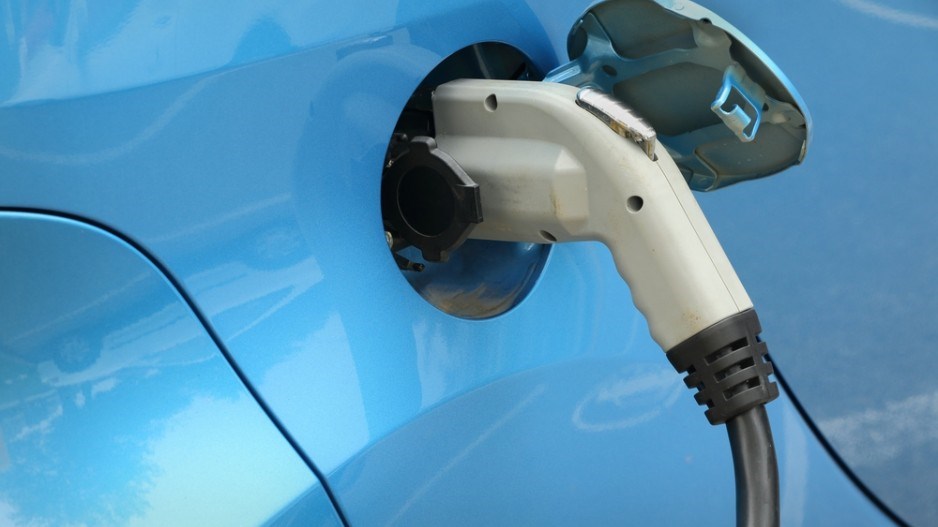An oped from the Pembina Institute is urging Ottawa and the provinces to look at electric vehicle production as one of the pillars for rebuilding Canada’s economy post-COVID-19, but an industry veteran said he is skeptical policymakers can be convinced.
The opinion piece, published earlier this month by Pembina Institute’s Ontario regional director Carolyn Kim, said an analysis by Navius Research Inc. estimated the sector could grow to a size of $152 billion in GDP and employ 1.1 million people by 2040 - but only if a “strong national zero-emission vehicle policy framework” is in place.
The focus on electric and zero-emission vehicles, Kim said in her report, comes from the fact that Canada needs to find sectors to grow where there’s long-term potential and insulation from future economic shocks after COVID-19 has passed. One key method, Kim noted, is to “future-proof” Canada’s sizeable but shrinking auto manufacturing sector with electric and hydrogen fuel cell expertise.
“The future is clearly electric — globally, light-duty electric vehicle sales have grown over 60% a year since 2012,” Kim’s report said. “But Canada only produces one plug-in vehicle model, which accounts for less than half a per cent of domestic light-duty vehicle production.”
That one current passenger vehicle model is the Chrysler Pacifica PHEV being manufactured at Fiat Chrysler Automobiles’ Windsor Assembly.
Kim added, however, that Quebec is home several heavy-duty electric vehicle producers. B.C., meanwhile, has a small group of companies such as Vancouver’s Electra Meccanica (three-wheel single-occupancy vehicle) and Parksville’s Canadian Electric Vehicles Ltd. (industrial vehicles and conversion kits).
“The foundation for growth is already laid,” she said, adding hydrogen vehicles comprises another part of the equation. “With hydrogen and fuel cell companies already in British Columbia, Alberta, Manitoba, Ontario, and New Brunswick, the potential for job growth across the country is ample.”
The take that Canada should invest in electric vehicle production, however, predates the current COVID crisis, said Daniel Breton, president and CEO of Electric Mobility Canada. Breton, who has been lobbying Ottawa and the provinces for years, said convincing decision-makers has not been a simple process - despite the obvious benefits in the future.
“I’ve brought it up 13 years, 10 years, and 5 years ago,” Breton said. “I asked Ontario officials to move towards electric, because they will then be ahead of curve. But people were afraid of the shift, and even the unions were not interested. Now, they’re losing jobs to places where innovations and technologies are being created.”
The most notable example has been General Motors’s decision to cease car production at the venerable Oshawa Car Assembly, eliminating thousands of jobs in the process. A big part of the development came as a result of a lack of foresight from Ottawa when time came to bail out the auto industry in 2008, Breton said.
“When GM and Chrysler were in trouble, the U.S. stimulus package said you have to research and develop electric vehicles as part of the deal,” Berton said. “Canada’s deal had no such program… And what happened was, some research and development centres in Canada closed down and transferred to the U.S.”
Today, Breton’s view has not changed on the future potential of electric cars in Canada. But he added the current subsidies provided to producers and suppliers in the industry aren't nearly enough to help them survive the COVID-19 onslaught.
“People are not buying right now,” Breton said. “They are not ordering anything. Most orders have been cancelled or postpone until who-knows-when. Lion Electric Co. - one of our electric bus makers here in Quebec - has 250 different suppliers across Canada. If their orders have stopped, the orders for all these 250 suppliers have stopped as well.
“The real question is, does Canada want an electrification of vehicles industry or not? Because if we let the whole ship go down, we will still have more electric cars and buses in Canada over the next few years. But they won’t come from Canada or with parts from Canada... It’s going to need real political conviction and will to prevent that from happening."




